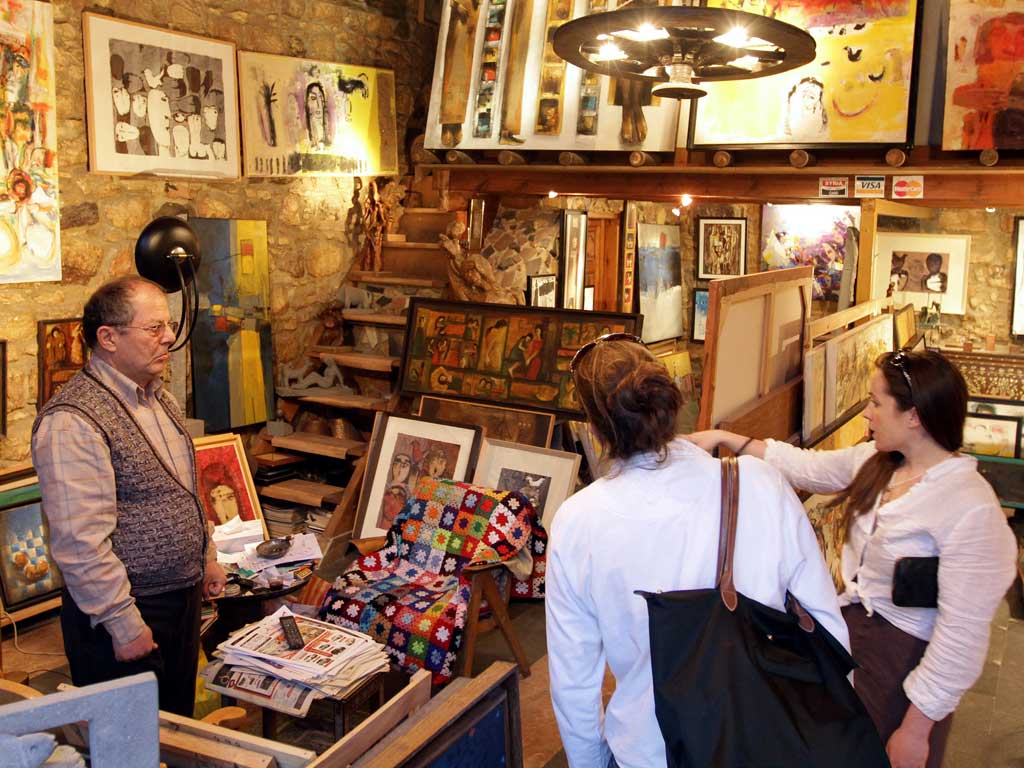High street haggling really does pay
Recession-hit retailers need customers, but a Which? survey finds a third of us are still too afraid to negotiate a deal

Your support helps us to tell the story
From reproductive rights to climate change to Big Tech, The Independent is on the ground when the story is developing. Whether it's investigating the financials of Elon Musk's pro-Trump PAC or producing our latest documentary, 'The A Word', which shines a light on the American women fighting for reproductive rights, we know how important it is to parse out the facts from the messaging.
At such a critical moment in US history, we need reporters on the ground. Your donation allows us to keep sending journalists to speak to both sides of the story.
The Independent is trusted by Americans across the entire political spectrum. And unlike many other quality news outlets, we choose not to lock Americans out of our reporting and analysis with paywalls. We believe quality journalism should be available to everyone, paid for by those who can afford it.
Your support makes all the difference.If you don't ask, you don't get. Yet despite the potential to save hundreds of pounds by haggling, one in three people are too embarrassed to even suggest to shop staff that they want a discount.
Bartering over price before doing a deal is no longer reserved for souks or street markets on holiday. Brits feeling the pinch are talking big-name chains, as well as independent stores, into tearing up their price tags. From televisions and computers, to baby clothes, gardening tools and make-up, it seems retailers desperate for sales are increasingly willing to do business.
Almost half of people (43 per cent) have tried to haggle in the past year, according to a new survey from the consumer group Which?, with three-quarters securing a discount. And despite major retailers officially stating that they will not match prices found online, many are willing to reduce prices once a potential customer is in their shop. Almost two-thirds (62 per cent) of people armed with a price from an internet outlet managed to persuade a shop to match it, saving, on average, £52.
Richard Lloyd, executive director at Which?, said: "Haggling for a bargain doesn't have to be confined to the markets of Marrakesh, as we've found better deals can be negotiated on the high street, too. There's nothing to lose in asking for a lower price, especially at a time when everyone is feeling the pinch."
More than a third of people surveyed (37 per cent) are too embarrassed to haggle, while 38 per cent do not bother trying because they do not think it will work.
Researchers from Which? were sent to 27 shops, including 22 independents, to buy a Canon EOS 1100D camera with a 18-55mm lens kit, which was then priced on Amazon at £350. Among the independents, every shop offered a discount once they were shown the Amazon price, the lowest deal being £369. The large retailers drove a harder bargain, and insisted they could not match online deals, but some were willing to negotiate if the camera was bought that day.
When trying to get shops to match online prices, shoppers saved £66.20, on average, on TVs and hi-fis, £73.47 on large electrical home appliances such as fridges and washing machines, and £52.47 on computers and IT accessories.
The suggestion that the best deals may not always be found online will be a welcome boost for the high street, which continues to be battered by grim trading results and waves of store closures. The latest figures from the Local Data Company show a rise in the national shop vacancy rate in the first quarter of this year to its highest level, at 14.6 per cent. But, while the big chains cut their store numbers by 0.25 per cent in 2011, the number of independent retailers grew by 2.4 per cent – and it is these businesses that are more willing to negotiate with customers.
Top tips for paying less
Be prepared
Let staff know you are a serious buyer by asking sensible questions.
Be realistic
You won't get a £500 TV for £50, no matter how good your haggling.
Go armed
Don't just say you've seen it cheaper elsewhere; take proof, including printouts from the internet.
Timing is everything
Trying to do a deal on a busy Saturday morning is hopeless. Wait until the shop is quiet, and staff are desperate for a sale.
Extras
Getting a good deal isn't just about discounts; it might mean having some extras thrown in or delivery charges waived.
Be polite
Punching the counter (or cashier) and demanding a discount will prove counterproductive.
Think local
The owner of an independent store doesn't have to answer to head office, so might be more willing to cut prices.
Have some dignity
Bartering is one thing, but do not beg. Walk away.
Join our commenting forum
Join thought-provoking conversations, follow other Independent readers and see their replies
Comments